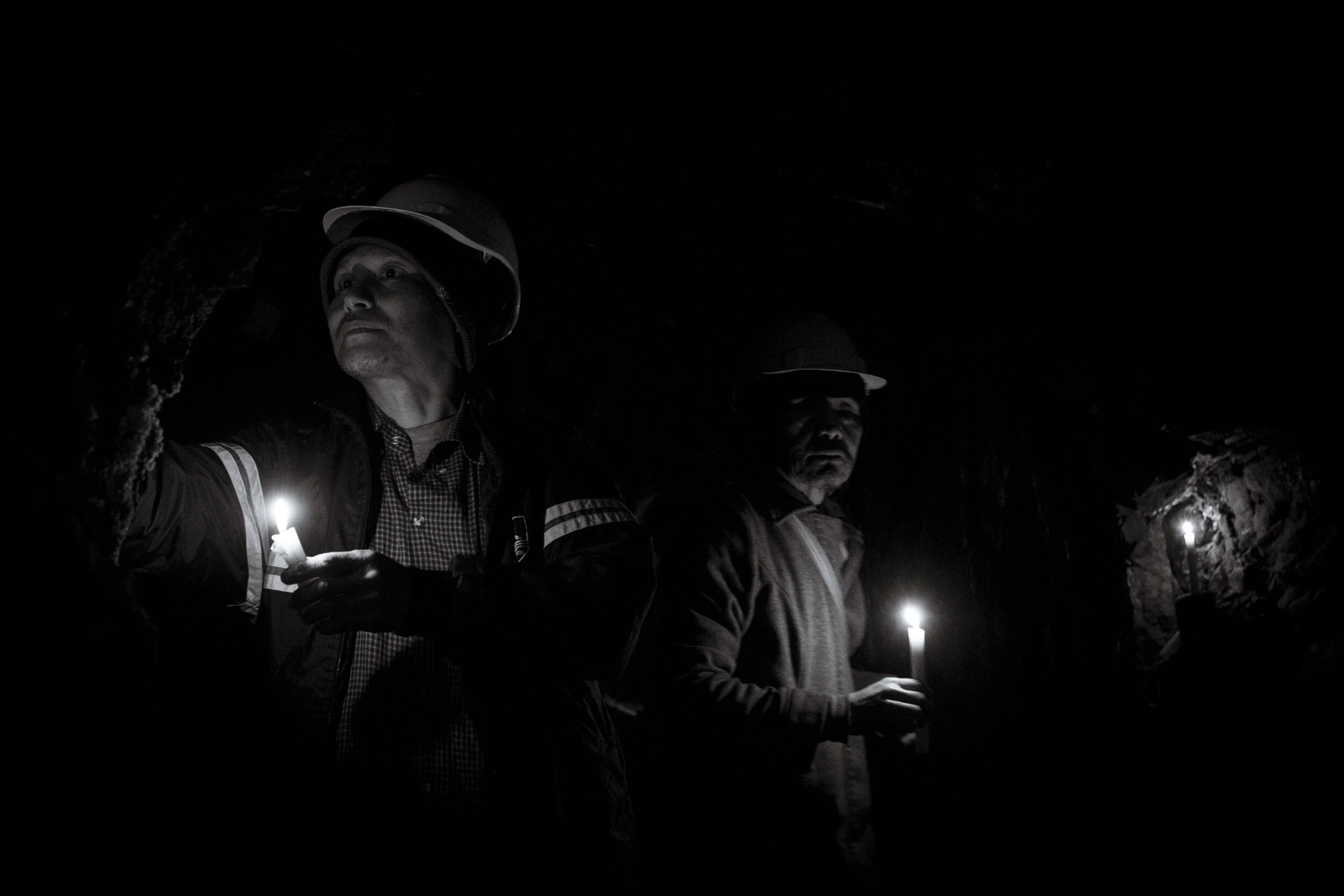
Maldon, Victoria. Kini Htoo and Poo Aung (centre, Naw Su's husband) search for evidence of gold in Carman’s Tunnel ,an abandoned mine on the outskirts of Maldon rural Victoria, on a historical education excursion. The gold rush was a topic highlighted by the elders of the ethnic communities of Burma as of interest to assist them in learning the history of Australia.

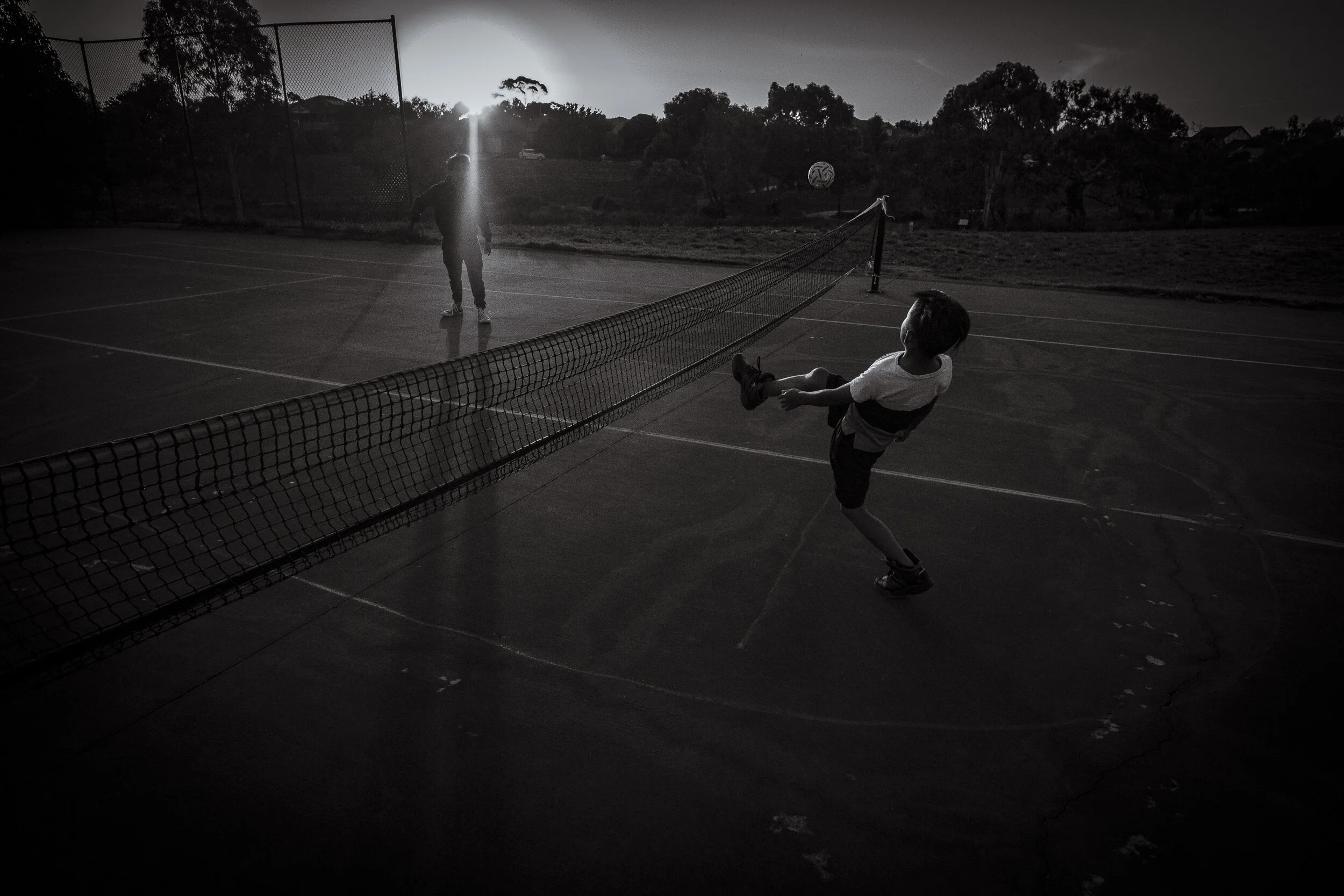
Wyndham Vale, Melbourne. Cousins, Loo Wah Htoo (Poo Aung’s son) and Mou Lay play the traditional Burmese game of Chinlone in the late evening light. Having that connection to traditional culture is shared by most of the ethnic minorities of Burma youth, either through their parents and grand-parents or directly as a result of having grown up in the refugee camps on the Thai/Burma border. As the community in Wyndham is young, the first major settlement was in 2010, many of the youth are old enough to remember the way of life in their homeland.
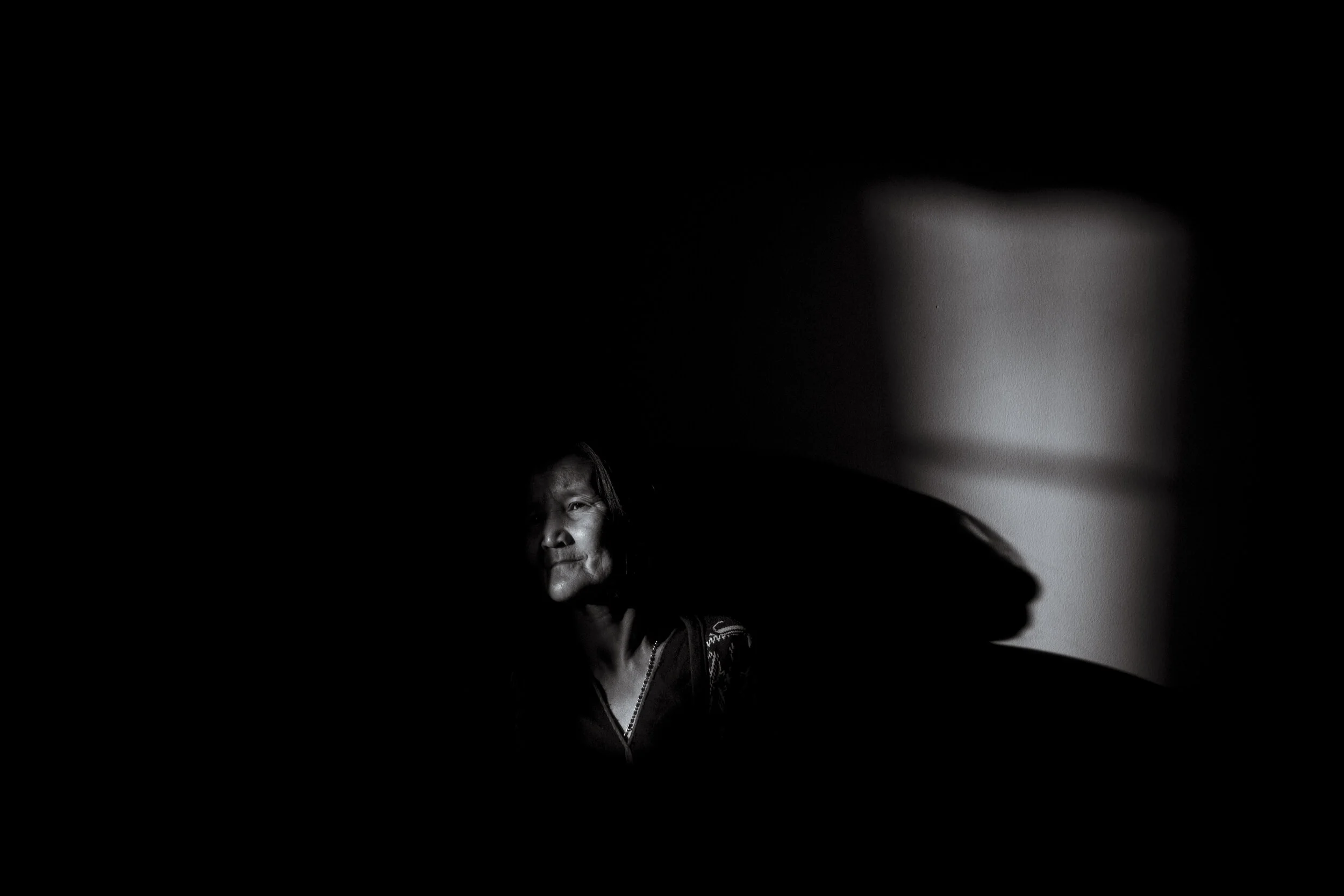
Wyndham Vale, Melbourne. Naw Sue Htoo leans on the living room wall and lets the late afternoon light warm her face. She fears the darkness, the trauma of her life in Burma apparent in her lack of energy. As a younger woman, Naw Sue’s village came under constant attack from the Burmese army. She would flee into the jungle with her husband, Poo Aung and their children whilst the army razed their rice fields and homes. Two of her children would die as a result.

Werribee, Melbourne. Young members of the Victorian Karenni Choir- Juliette Bawmeh Moe and Moh Meh pose for a photo by Hsaw Meh after performing at the closing of the Australian Ethnic Communities of Burma Conference. The national conference was held in Melbourne and aimed to bring the various communities together to discuss both, local and international issues facing the groups. As a vestige of having spent their formative years in refugee camps, the Karenni youth maintain pride in their heritage and culture, and have a deep-rooted respect for the elders of the community.

Werribee, Melbourne. Young members of the Australian Karen Organisation Dance group - So Win, Kaing Kyi and See Mee share a joke after performing at the closing ceremony of the Australian Ethnic Communities of Burma Conference. The national conference was held in Melbourne and aimed to bring the various communities together to discuss any issues, both local and international, facing the groups. As a vestige of having spent their formative years in refugee camps, the Karen youth maintain pride in their heritage and culture, and have a deep-rooted respect for the elders of the community.
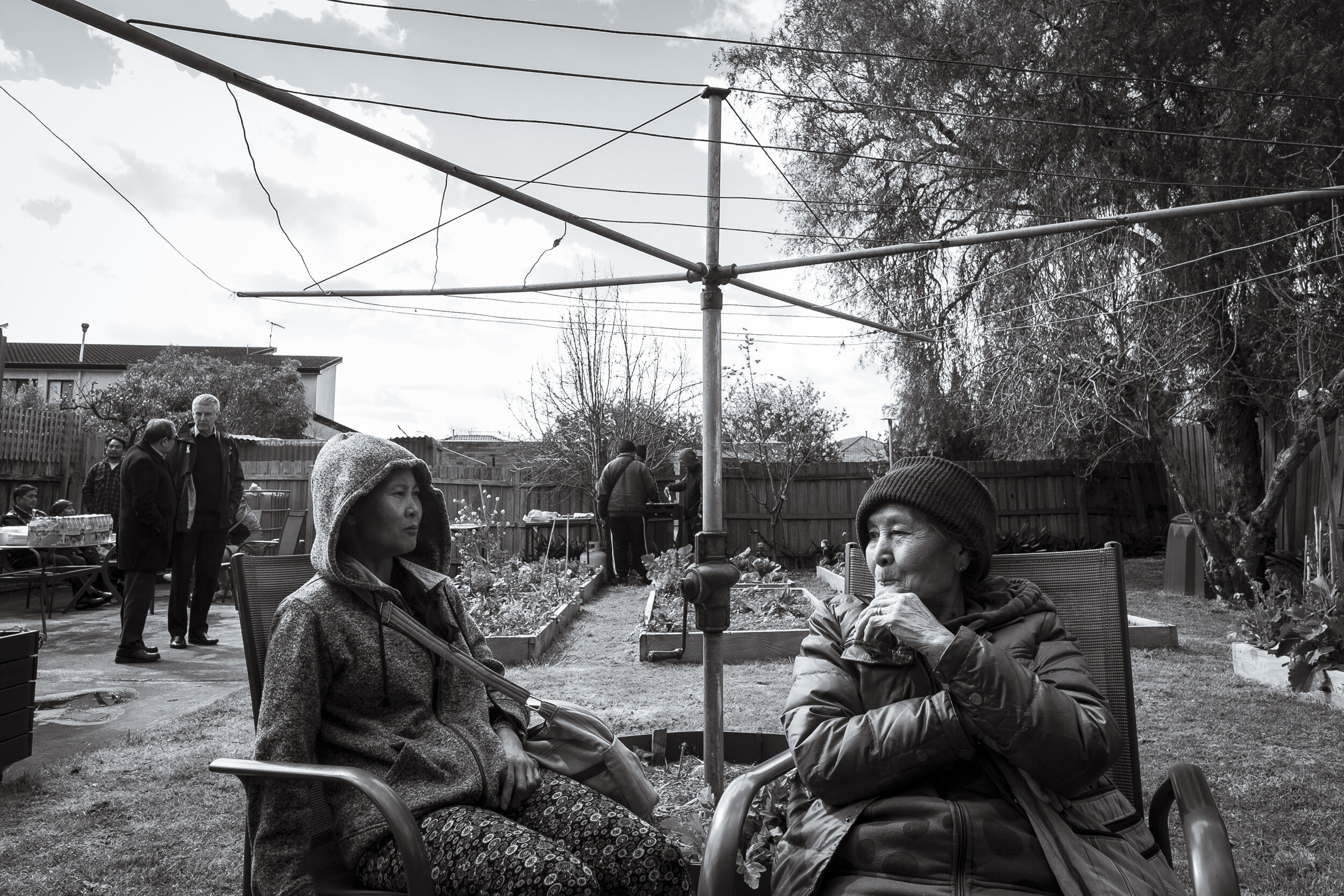

Wyndham, Melbourne. Ah Myang's daughter and grand-daughter share a lighter moment as Ah Myang's wife sits in the backyard alone. Elders will often find it the hardest amongst re-settled communities mainly due to their lack of, or ability to learn English. This will lead to isolation and acceptance and widen the generational gap.

Wyndham, Melbourne. Washing for the extended family of Ah Myang hangs on a makeshift clothesline. Refugees from the ethnic minorities of Burma have settled un-noticed in Wyndham, west of Melbourne, but beneath the surface of their close knit community lies isolation and trauma that if unfettered can lead to a loss of hope. A small community centre- the Wyndham Community Education Centre, WCEC- has taken the advice of the elders of the community and now teaches the refugees the history of Australia, both indigenous and colonised. The intent is to provide them a sense of place -a home.
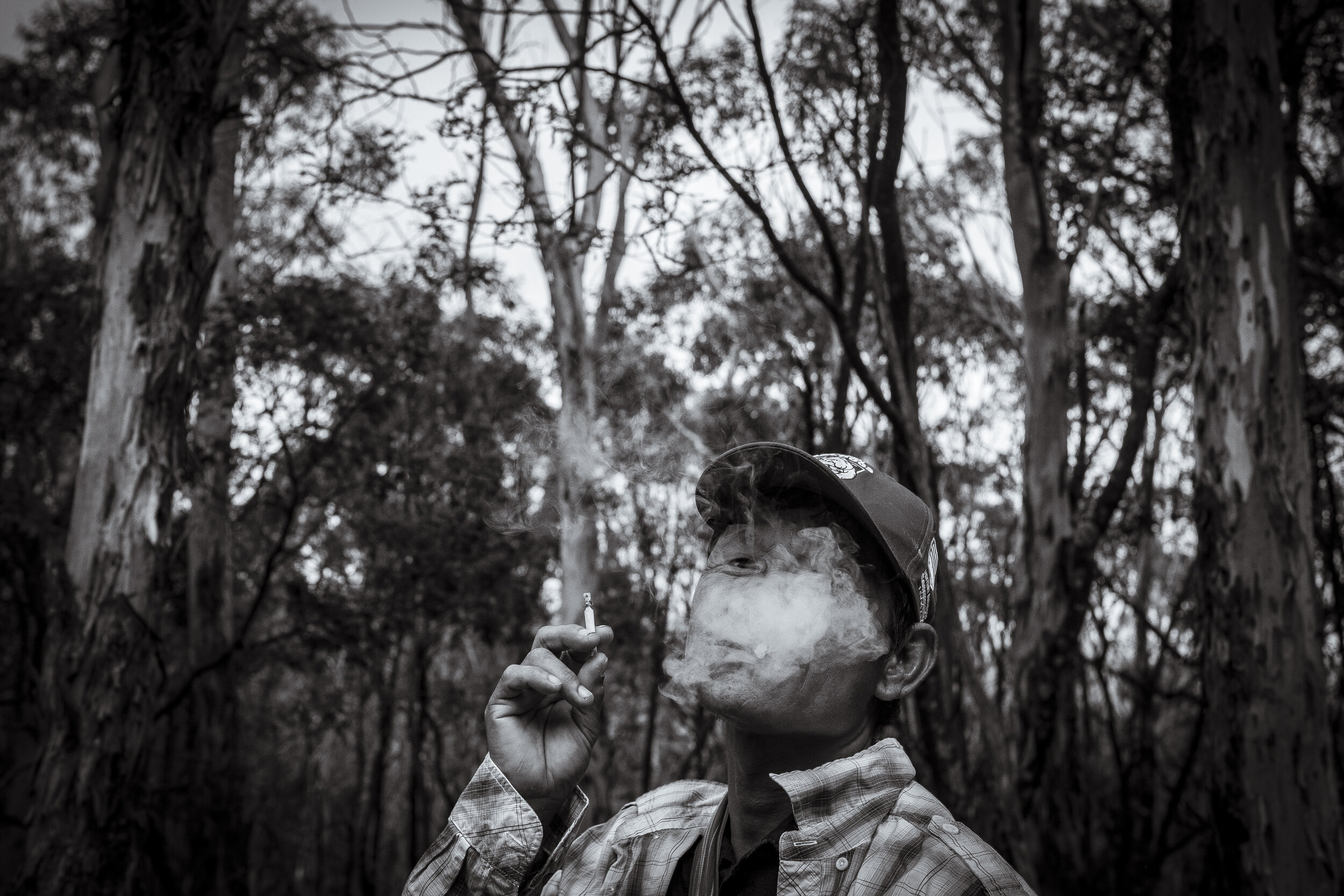
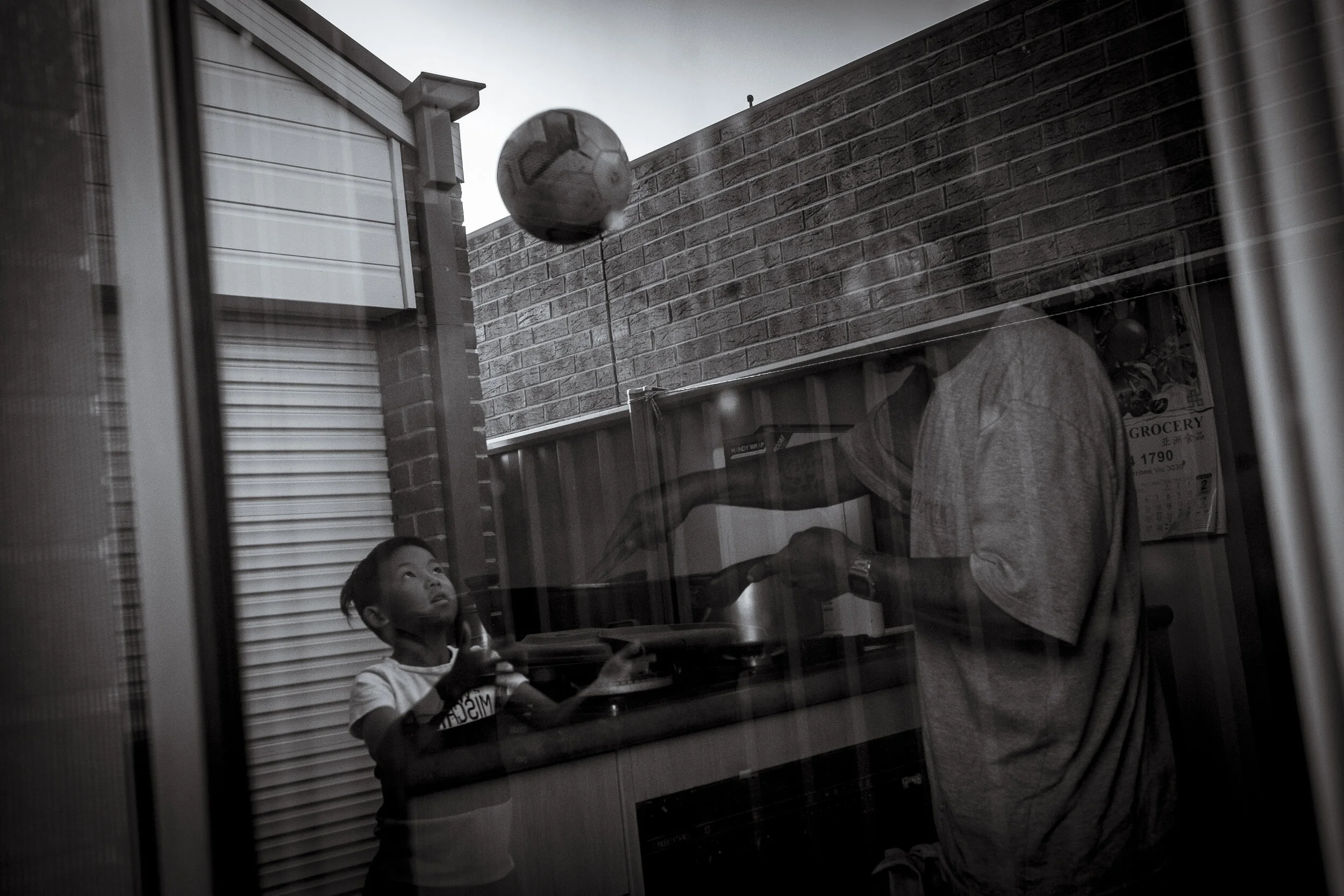
Wyndham Vale, Melbourne. Eight-year-old twin, Andrew Htoo, plays outside after school as his father Roh Htoo cooks a curry for the family meal. The ingredients that combine to provide the sense of place are many, and the methods to assist can be as diverse as the minority groups themselves. It is apparent that the hope, and learning, cultural preservation and contributions to society that are shared experiences amongst this particular community, are all geared towards a common goal – preserving a better future for their children.
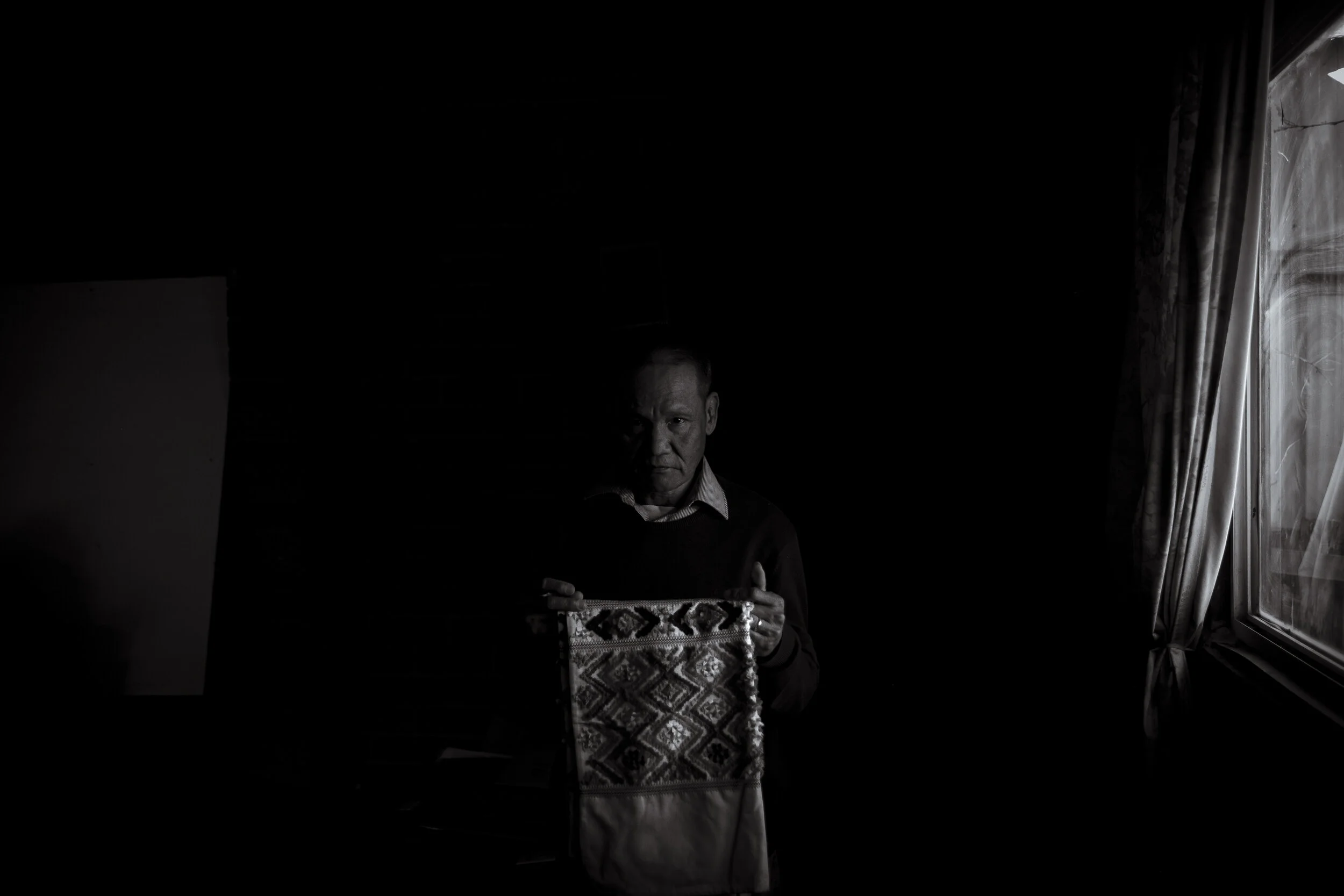
Wyndham, Melbourne. Ah Myang Saw Htoo, or 'Loom-Man' as he is known by his English speaking friends, present a weaved table runner, one of the products he produces. The 63-year-old is viewed as a leader amongst his peers within the Wyndham Burmese ethnic minorities community. He is at the forefront of a small social enterprise growing out of the local Karen people skills as weavers. His ability to contribute to society through the enterprise comforts him, knowing that he is giving back to the society that has taken in his family.
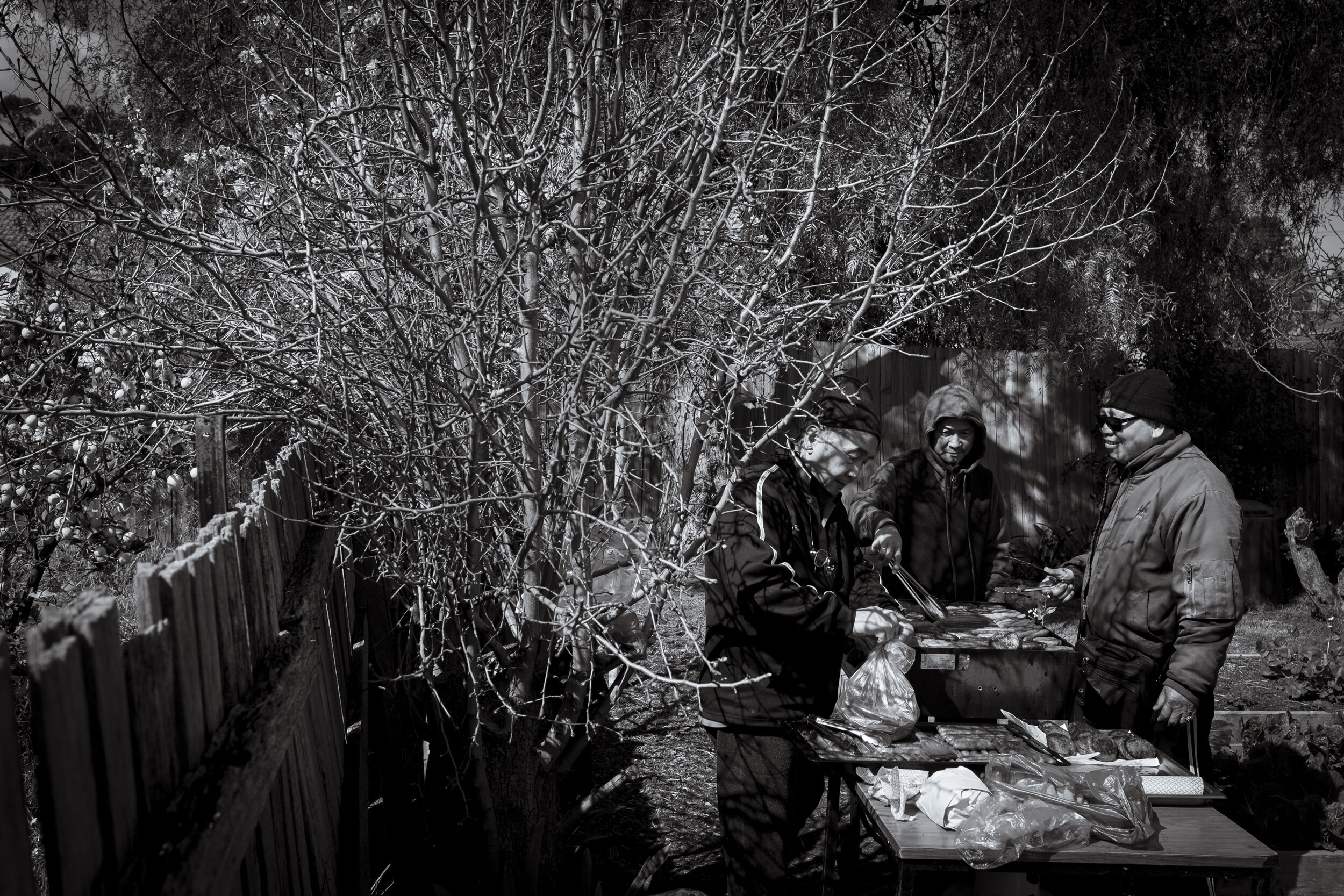
Werribee, Melbourne. Tha Toke, Saw Ha Paw Johny and Ooh Myaing cook a BBQ for guests at the WCEC open day as part of the Wyndham City's learning festival. As part of the re-settlement program run by WCEC, the elders of the community can join a men’s or women’s group, run each alternate Friday as an introduction into a social circle. "If they have a sense of belonging they feel part of the community here. They feel they are contributing something to the Australian community. Especially the leaders and elders, they are all thinking about how to build relationships and how to work together." says Reginald Shwe - Community Liaison worker at mental health organization, Foundation House.
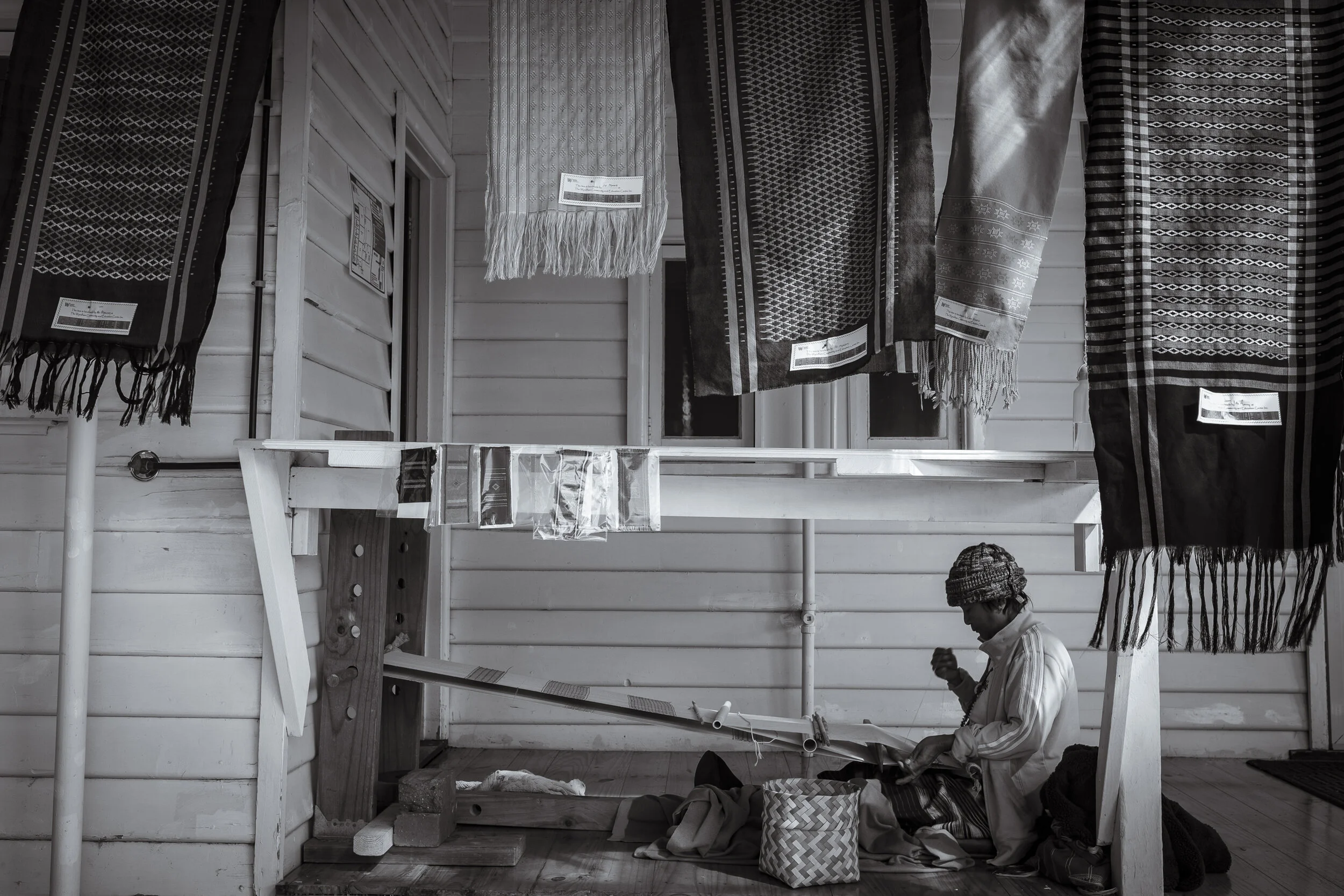
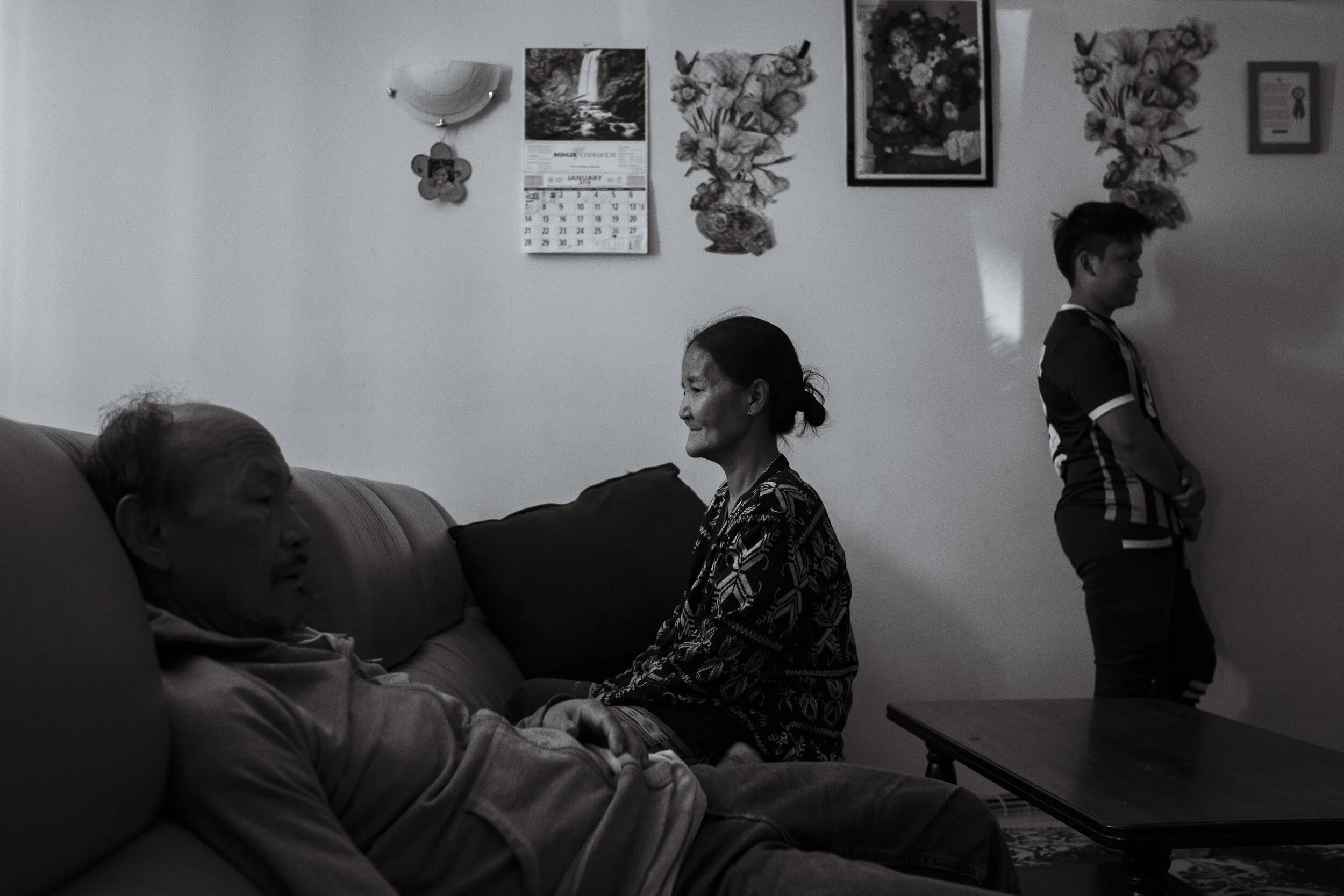
Wyndham Vale, Melbourne. Naw Sue stares out the window into the late afternoon light as her husband Poo Aung and nephew Daniel watch television. Evenings are spent as a family, socializing but the living conditions are cramped and Daniel finds it difficult to find quiet time and space to finish his studies.

Hanging Rock, Woodend, Victoria. Pah Dah Tapue, a member of Melbourne’s ethnic communities of Burma is seen atop the natural rock formation at Hanging Rock, Victoria. As a part of the historical excursion program, Hanging Rock was chosen for its significance to Australia’s Indigenous culture, a topic highlighted by the elders of the ethnic communities of Burma as of interest to them, helping them to understand the history of their new country.















